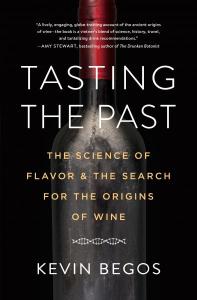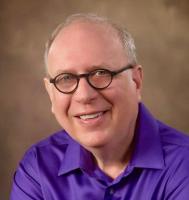Kevin Begos: Tasting the Past
For this column, NASW book editor Lynne Lamberg asks NASW authors to tell how they came up with the idea for their book, developed a proposal, found an agent and publisher, funded and conducted research, and put the book together. She also asks what they wish they had known before they began working on their book, what they might do differently the next time, and what tips they can offer aspiring authors. She then edits the A part of that Q&A to produce the author reports you see here.
Publication of NASW members’ reports in Advance Copy does not constitute NASW’s endorsement of their books. NASW welcomes your comments, and hopes this column stimulates productive discussions.
TASTING THE PAST:
THE SCIENCE OF FLAVOR
& THE SEARCH FOR THE ORIGINS OF WINE
Kevin Begos
Algonquin Books, June 12, 2018, $26.95
ISBN-10: 1616205776; ISBN-13: 978-1616205775
eBook and Audio book also available.
Begos reports:
The idea for Tasting the Past came about because of a chance encounter in Amman, Jordan, with an obscure Middle Eastern wine. In my hotel minibar was this little bottle from Cremisan Winery and Monastery, which is located between Bethlehem and Jerusalem. The dry red had a spicy flavor. It was pleasingly different, with even a hint of earthy terroir.
It was 2008. I got home, did some research, and discovered that at the time no one had heard of it. Plus, Cremisan was using grapes with strange names like Jandali, Hamdani, and Baladi.
I found my agent Laura Wood because she had represented other science writers. I envisioned a different type of wine book: one where scientists explained things, not just wine geeks. Several publishers bid on the proposal.
I decided to trace the origins of wine by traveling from the Caucasus Mountains, where winemaking began about 8,000 years ago, then down to Israel and across the Mediterranean, just as it spread through antiquity. Turns out winemaking didn’t reach France until about 500 BC.During my travels I became aware of a wine grape biodiversity issue: Despite endless bottles of wine in store and restaurant lists, almost all wines are made with a handful of famous French grapes. Over the last 150 years or so hundreds of native grape varieties all over the world have been pushed to extinction. Now some people are fighting to preserve them.
Everywhere I went, I found an explosion of cutting-edge science on taste and the origins of wine, by researchers such as Patrick McGovern, an archaeobiologist at the University of Pennsylvania who deciphers the flavors that were in foods and wines thousands of years ago, and Jose Vouillamoz, a Swiss geneticist and wine lover who hopes to understand the DNA and family tree of every wine grape in the world.
My advice to aspiring authors: Look hard at what other people have written on your subject. Make it new somehow. Start PR efforts at least six months before publication date. And budget travel and other costs carefully.
Contact info:
- Kevin Begos, 850-566-2374, kevinb109@gmail.com, http://www.kevinbegos.com/, @kbegos
- Book website: https://www.workman.com/products/tasting-the-past
- Agent: Laura Wood, laura@fineprintlit.com
- Publicist: Jacquelynn Burke, 212-614-5640, jackie@algonquin.com
NASW members: will your book be published soon? Take advantage of this opportunity for shameless self-promotion. Submit your report for Advance Copy.
Tell your fellow NASW members how you came up with the idea for your book, developed a proposal, found an agent and publisher, funded and conducted research, and put the book together. Include what you wish you had known before you began working on your book, or had done differently.
See https://www.nasw.org/advance-copy-submission-guidelines.
Thinking of writing a book? If you are a NASW member, you may access a list of more than 150 books and online resources to help you craft your book proposal, find an agent and funding sources, negotiate your contract, learn about self-publishing, publicize and market your book, and more at https://www.nasw.org/article/write-book.
Send book info and questions about book publishing to Lynne Lamberg, NASW book editor, llamberg@nasw.org.



